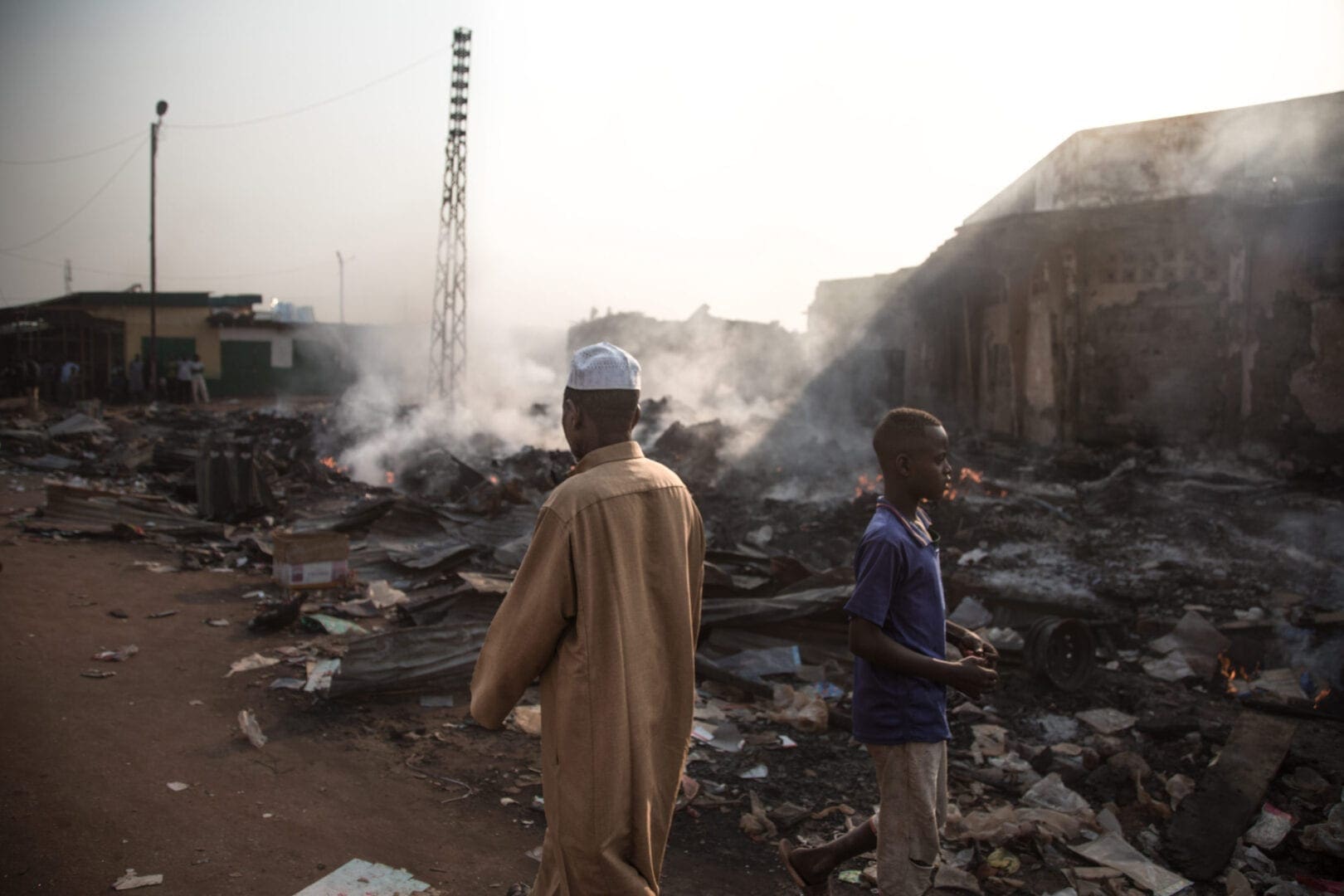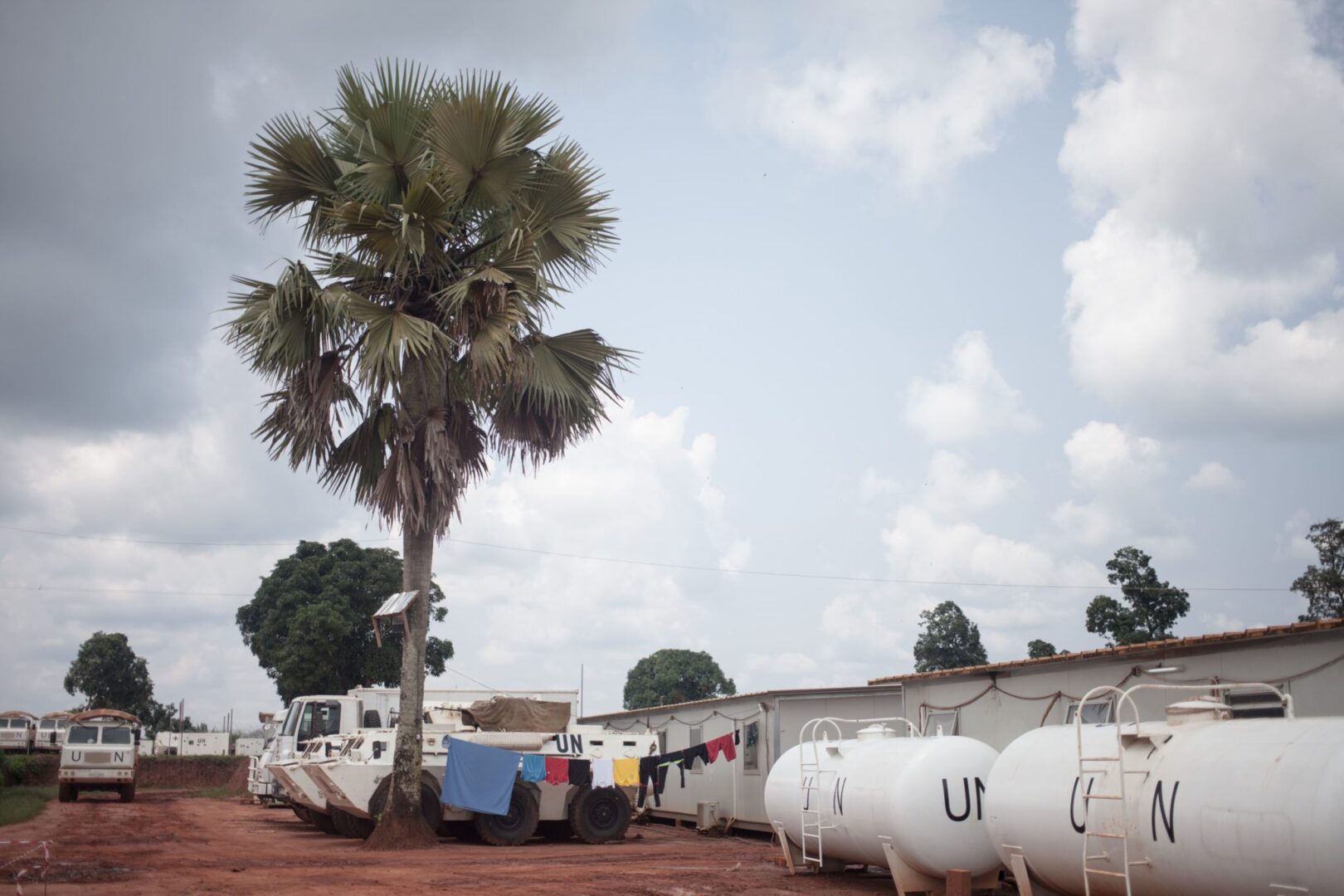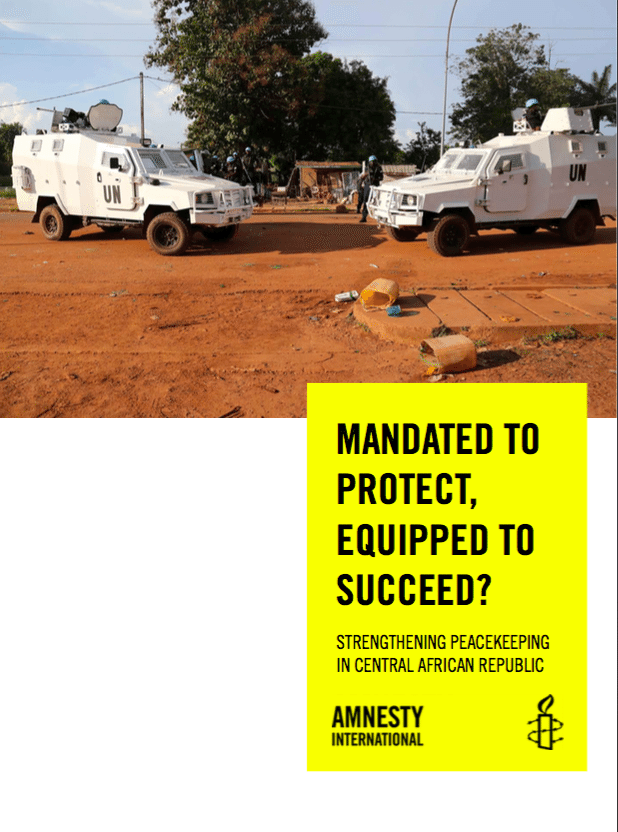The following information is based mainly on the Amnesty International Report 2022/23 and other reports issued by the International Secretariat of Amnesty International. It presents Amnesty International’s concerns and calls for action.
OVERVIEW
Human rights violations and abuses continued in the context of the armed conflict; dozens of civilians were killed during attacks by all parties. Women and girls were subjected to conflict-related sexual violence. The Special Criminal Court held its first trial and convicted three people for crimes against humanity. At least 50% of the population faced food insecurity; in some areas it reached 75%. Several journalists faced intimidation, harassment and threats. The death penalty was abolished.
BACKGROUND
The security situation remains dire because of the armed conflict between the armed forces with their allies, and various armed groups. The urgency of the situation demands that the international community take all measures to respond to the crisis in the CAR, protect the civilian population, provide aid to threatened areas and stop forced evictions and the destruction of homes.
The current series of violent attacks began in 2012 with the removal from power of François Bozizé. Since that time, the Central African Republic (CAR) has continued to experience a massive human rights and humanitarian crisis. Amnesty International researchers have documented war crimes, crimes against humanity, ethnic cleansing and sectarian killings.
In March of 2022, the Republican Dialogue for Reconciliation, organized by the authorities, was boycotted by the main opposition parties. A constitutional reform project supported by the government was viewed by some political parties as a means to allow the president to run for a third term. In September 2022, the constitutional court annulled the decree establishing a government-appointed committee to redraft the constitution. In the same month, lawyers and magistrates held a seven-day strike in support of independence for the judiciary. The following month, the constitutional court’s president was removed from office.
KEY ISSUES
According to the UN Multidimensional Integrated Stabilization Mission in the Central African Republic (MINUSCA), at least 100 civilians were killed between February and March 2022, and at least 46 civilians were killed in September, including eight women and eight children, by members of the Union for Peace in the Central African Republic and Return, Reclamation and Rehabilitation (known as 3R), armed groups that had signed the peace agreement in 2019, as well as by the security forces. In October 2022, three MINUSCA peacekeepers were killed, and one seriously injured by an improvised explosive device (IED) in the Koui area. According to OCHA, between January and October of 2022, 11 people were killed and 42 injured in 40 IED-related incidents.
Dozens of persons suspected of criminal responsibility for crimes under international law, including war crimes and crimes against humanity remain at large in the CAR. Despite the start of the SCC’s work in 2018, very few persons suspected of criminal responsibility have been arrested, prosecuted, or tried. Proceedings to address the needs for justice, truth and reparation are far from enough.
On March 14, 2022, Maxime Jeoffroy Eli Mokom Gawaka was surrendered to the ICC by the Chadian authorities and transferred to The Hague. He is suspected of criminal responsibility for war crimes and crimes against humanity allegedly committed by the anti-Balaka armed group in CAR in 2013 and 2014, while he was national coordinator of their operations.Since 2014, the ICC has been investigating the crimes, which were allegedly committed amid the armed conflict that has raged in CAR since 2012. The SCC, a UN-backed hybrid court that started its activity in 2018, is also able to investigate and prosecute crimes under international law committed in CAR since 2003.The delay in executing arrest warrants, often due to practical difficulties or a lack of political will, remains one of the biggest obstacles to pursuing justice for crimes under international law in CAR. Amnesty International documented the issue in its briefing “One step forward, two steps backwards,” published in December 2021.
The ICC trial of Mahamat Said, alleged commander of the Séléka armed group, opened in September 2022 with charges of crimes against humanity and war crimes.
The Court of Assizes in Bangui, the capital, held its first criminal trials since 2020 in April 2022. Twenty-five cases were heard involving alleged members of the armed group, Coalition of Patriots for Change, who were found guilty. Also in April, the government announced the opening of a judicial investigation into a deadly attack against the Muslim community in Boyo which took place in December 2021. In July, MINUSCA published a report on the events in which at least 20 civilians were killed, including a 12-year-old girl and three boys, and at least 12 people were injured; 547 homes were burned and food stocks looted. MINUSCA said the attacks were carried out by the armed group, Anti-Balaka, with the involvement of the Central African Republic armed forces who had trained the former in Bambari and transported them to the Boyo area the day before the attack.
The first trial before the Special Criminal Court (SCC), a UN-backed hybrid court mandated to investigate and prosecute crimes under international law committed since 2003, opened in May of 2022. It concerned three members of 3R accused of killings, rapes and other inhumane acts committed in the villages of Lemouna and Koundjili in May 2019. On October 31, 2022, they were found guilty of war crimes and crimes against humanity. The SCC also announced the arrest of three people suspected of having committed crimes in the context of the conflict. The court said in its June report that it had issued more than 60 arrest warrants, of which only four had been executed. The SCC is facing difficulties in bringing those suspected of criminal responsibility for crimes under international law to justice, including because of the non-execution of the arrest warrants it issued. The release of Hassan Bouba Ali, a former armed group leader suspected by other NGOs of being linked to the killing in 2018 of more than 70 civilians, including children in Alindao, is an example of the lack of support by political authorities for the Court’s mission. Amnesty International has called on CAR authorities and MINUSCA to take all possible measures to ensure the execution of the SCC arrest warrants and ensure that all those suspected of criminal responsibility for crimes under international law and other serious violations or abuses committed since 2003, from all sides of the conflict, are genuinely investigated and prosecuted in fair trials.
According to the Gender-Based Violence Information Management System, between January and September, 17,831 cases of gender-based violence were registered in 2022, more than all cases recorded in 2021. The statistics related only to victims who agreed to speak, which suggests the actual figures might be far higher. According to the UN Secretary-General’s report on the situation in the Central African Republic, MINUSCA documented 47 cases of conflict-related sexual violence between June and October 2022 in which it identified 70 victims, including 42 girls aged between two and 17 years. It attributed responsibility for the crimes to all parties to the conflict.
According to the UN World Food Programme (WFP), food insecurity worsened as a result of the Covid-19 pandemic and the conflict in Ukraine, which led to a rise in food prices. In September 2022, 50% of the population (around 2.2 million people) did not have enough to eat. The situation was of particular concern in the Bakouma, Koui, Ngaoundaye, Obo and Zémio sub-prefectures where between 65% and 75% of people were affected. The WFP said that throughout the country 395,000 children under the age of five were chronically malnourished.
Amnesty International is also calling on CAR’s authorities to ensure that crimes against civilians are not prosecuted in the newly established military courts. The jurisdiction of military courts over criminal cases should be limited to trials of military personnel for breaches of military discipline and should exclude human rights violations, or crimes under international law. In September 2021, the Bangui martial court sessions examined its first series of cases, among which there were cases about murder of civilians. These cases should fall under ordinary civilian courts. Amnesty International’s researchers found that there was no step towards amending the country’s law to ensure the jurisdiction of military courts is limited to military disciplinary matters. On the contrary, the holding of these sessions was presented by the government as a success in the fight against impunity within the armed forces.
Journalists face intimidation, harassment and threats simply for exercising their right to freedom of expression.
Ndeke Luka Radio officials said that on September 26, 2022, the Ministry of Communication informed them that the station might be closed if the journalists continued to cover the constitutional reform issue. In October, the High Council of Communication (the media regulator) denounced intimidation, harassment and threats against journalists by “political authorities.”
The death penalty was abolished under the Law on the Abolition of the Death Penalty which was passed by the National Assembly on May 27, 2022, and promulgated by the president one month later. The last execution in the country took place in 1981.
Relevant Links
- Chad/CAR: Maxime Jeoffroy Eli Mokom Gawaka must face justice at the ICC, March 2022
- Central African Republic: First-ever SCC trial ensures alleged war criminals face justice, April 2022
- Central African Republic: Dozens suspected of criminal responsibility for war crimes and crimes against humanity remain at large, December 2021
- One step forward, two steps backwards: Justice in the Central African Republic, December 2021
- Un pas en avant, deux pas en arrière. Justice en République centrafricaine, December 2021
- Central African Republic: Victims speak out on the need for justice, October 2022
- Central African Republic: Victims speak out (videos), October 2022
- Central African Republic: Amnesty International Annual Report 2021/22
- For more information visit the Amnesty.org Country page





